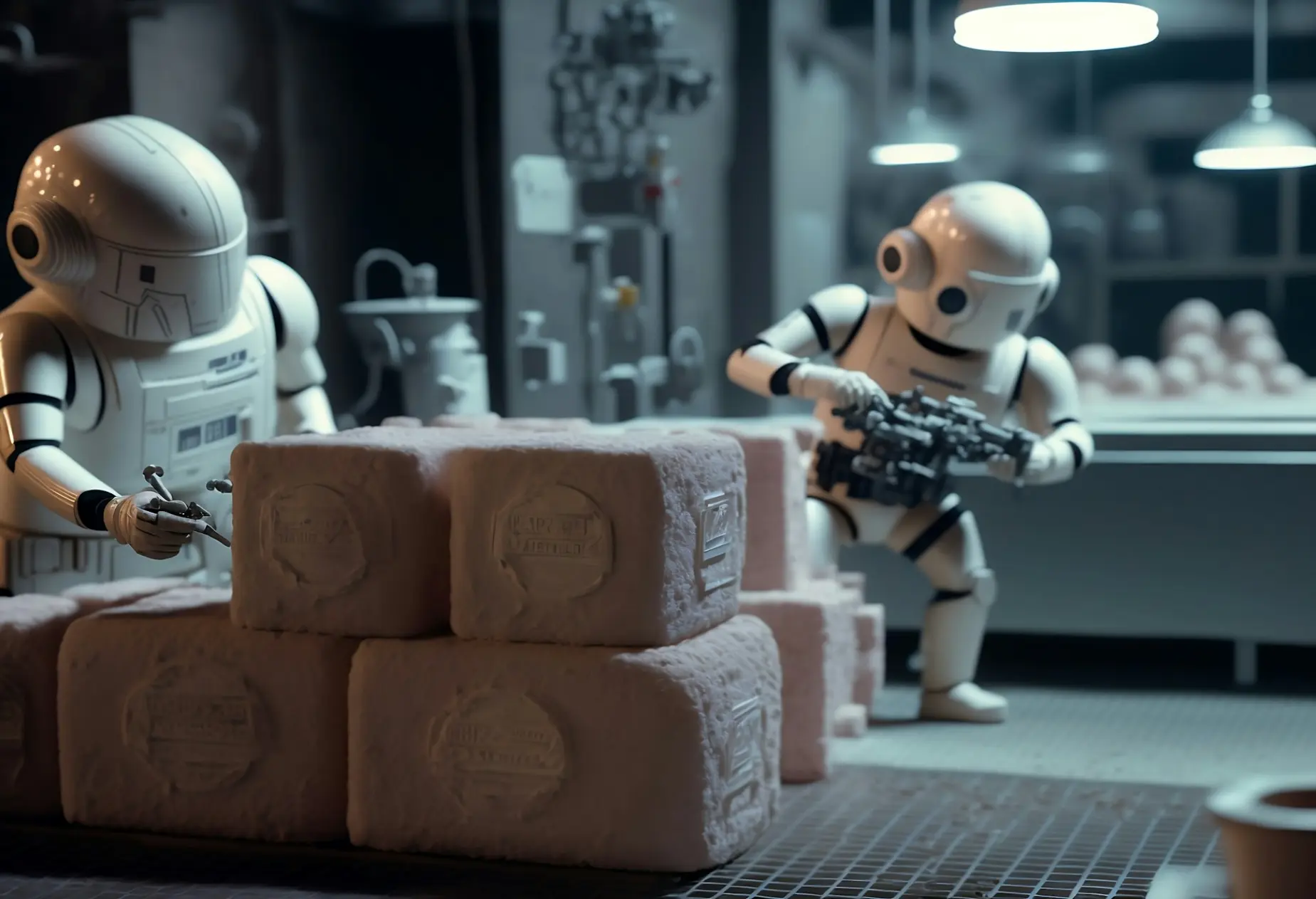How AI Changed My Daily Life: A Real Story from a Skeptic
Initially, I viewed AI in life as nothing more than an overhyped technological fad. I was certain that artificial intelligence would never integrate meaningfully into my daily routine. However, my perspective changed dramatically when I discovered that about one in five UK households reported having an AI-based home security system last year.
Surprisingly, AI in everyday life extends far beyond just home security. In fact, artificial intelligence has freed healthcare professionals from time-consuming administrative tasks, allowing them to connect more deeply with patients. What's more, AI in daily life is increasingly being used to develop personalized treatment plans, diagnose diseases, and monitor patients remotely.
Today, my journey from skeptic to enthusiast represents a transformation I never anticipated. This is the story of how someone who once dismissed AI as a passing trend came to embrace it as an essential part of modern living. Through my experiences, I'll share how artificial intelligence gradually rewired my routines, enhanced my productivity, and ultimately changed my perspective on technology's role in our lives.
From Skeptic to User: My First Encounters with AI
"Some people call this artificial intelligence, but the reality is this technology will enhance us. So instead of artificial intelligence, I think we'll augment our intelligence." — Ginni Rometty, Former CEO of IBM
Like many professionals, I approached artificial intelligence with a deep-seated skepticism. The resistance wasn't just about stubbornness—it was rooted in something more fundamental.
Why I didn't trust AI at first
My distrust of AI stemmed from several legitimate concerns. First, I worried about AI replacing human jobs—not just for manual tasks but also for knowledge-based roles. Additionally, I feared relinquishing control to systems operating on logic I couldn't fully understand.
The statistics reinforced my skepticism. A recent poll showed 65% of Americans have little trust in AI to make ethical decisions, while 54% don't trust it to make unbiased decisions. Furthermore, I worried about surveillance and potential misuse of personal data.
As a professional who prided myself on experience-based decision making, I aligned with executives who have long preferred gut-level decisions over AI-assisted ones.
The moment I gave it a try
Everything changed during a casual conversation with a tech-savvy colleague. "Instead of fearing it, start with something fun," she suggested.
Following her advice, I experimented with an image generation tool that created surprisingly realistic art from text descriptions. This low-stakes introduction made AI seem less threatening and more accessible.
Soon after, my workplace introduced a pilot program that allowed us to interact with AI on a smaller scale. This hands-on experience gradually demystified the technology for me.
Initial surprises and small wins
The results were eye-opening. My first project using AI-assistance showed a 0.37 standard deviation improvement in quality. Even more astonishingly, I discovered that individuals working with AI could outperform teams without it.
Contrary to my fears about becoming overdependent, AI actually encouraged me to think more critically, especially when I disagreed with its suggestions. The technology was augmenting my capabilities rather than replacing them.
One unexpected benefit was that AI helped "de-silo" specialized knowledge, preventing those with niche expertise from dominating processes. For someone who had always worried about being excluded from conversations outside my expertise, this was particularly valuable.
Despite these wins, I maintained a healthy skepticism. As one researcher noted, "Negative bias actually creates more vigilance"—proving that my initial caution wasn't entirely misplaced but could become constructive.
Daily Life, Rewired: How AI Became Essential
After those initial experiments, AI rapidly moved from curiosity to necessity in my life. The transformation happened so naturally that I barely noticed how deeply these technologies had become woven into my daily patterns.
AI in everyday life: routines and habits

My mornings now begin with AI-powered virtual assistants managing my calendar, setting reminders, and organizing to-do lists. These assistants use natural language processing to understand my preferences and adapt to my needs over time.
Beyond scheduling, AI has revolutionized my online experiences through personalization. Streaming services suggest movies I actually enjoy, online retailers recommend products aligned with my preferences, and news apps curate articles matching my reading interests. Moreover, AI has enhanced my communication - email applications categorize messages and prioritize my inbox, ensuring I never miss critical communications.
Perhaps most significantly, AI has transformed my health management. Wearable devices equipped with AI algorithms monitor my vital signs, track activity levels, and can even predict potential health issues.
How AI improved my time management
The impact on my productivity has been remarkable. AI-driven time management tools helped me prioritize tasks effectively and allocate time more efficiently. Consequently, 83% of U.S. workers report experiencing daily work-related stress, with 39% attributing this primarily to workload - a challenge AI has helped me address.
Smart scheduling assistants analyze my calendar and suggest optimal meeting times while balancing personal and professional commitments. Meanwhile, AI tools automate email sorting, reminders, and data entry, freeing up valuable time for strategic work.
Generative AI in life planning and creativity
Notably, generative AI has become my partner in both planning and creative endeavors. It helps me break down long-term goals into manageable steps and generates personalized meal plans and decluttering tasks.
On the creative front, photo editing applications use AI algorithms to enhance images according to my esthetic preferences. Furthermore, AI serves as a collaborative partner for creative expression, generating original ideas I'd never have considered. Ultimately, studies show that employees with access to generative AI were rated more creative by both supervisors and external evaluators.
The Deeper Impact: What I Didn’t Expect
The unexpected ways AI has changed my worldview extend far beyond simple convenience. As I delved deeper into this technology, I discovered its profound impacts in areas I hadn't anticipated.
AI in life sciences and health tracking
My perspective shifted dramatically when I witnessed how AI identifies patterns in massive genomic datasets that human researchers might miss. Beyond personal fitness tracking, I've seen AI analyzing health data to predict potential issues before symptoms appear. Equally fascinating is how AI can suggest personalized health interventions based on my unique physiological responses.
AI in life insurance and financial planning
Previously, I viewed insurance as a necessary evil with fixed premiums. Now, AI analyzes my lifestyle data to offer personalized coverage and pricing. Furthermore, AI-powered financial advisors have revolutionized my approach to money management by providing tailored investment strategies that adjust in real-time to market fluctuations.
Can artificial intelligence come alive? My thoughts
The philosophical questions are perhaps most intriguing. Although today's AI lacks true consciousness, I've had moments where the line seemed blurry. When my AI assistant anticipated a need before I expressed it, or when a generative AI created something genuinely moving, I questioned my assumptions about what constitutes "alive." Yet, I recognize these are sophisticated pattern recognition systems—albeit ones that continue to challenge my understanding of intelligence itself.
Living with AI: The New Normal
My relationship with AI has evolved beyond mere acceptance into thoughtful integration. Now that artificial intelligence permeates so many aspects of my life, I've developed strategies for living alongside this technology.
Balancing convenience with caution
Finding equilibrium between AI benefits and privacy concerns remains essential. Studies show that 59% of Americans feel they have little to no control over how AI is used in their lives. Nevertheless, I've discovered that as people gain knowledge about AI, attitudes often shift from negative to positive.
Primarily, I protect my privacy by implementing strong data security measures and maintaining control over my personal information. Since organizational support and visible benefits are key to fostering trust, I carefully evaluate each AI tool before integration.
Teaching my kids about AI

Educating children about artificial intelligence is crucial in today's world. I start by explaining algorithms as sets of rules that shape their online experiences, from Netflix recommendations to YouTube suggestions. Together, we explore:
- The importance of questioning AI-generated content critically
- How to protect personal information when interacting with AI
- The ethical considerations and potential biases in AI systems
Making learning about AI feel like an adventure rather than a chore has been effective—we explore AI-powered creative tools that transform learning into fun experiences.
How I now see AI as part of life, not a threat
Eventually, my perspective transformed completely. Recent data indicates 77% of people use AI-powered services despite only 33% believing they do. Certainly, AI has become my productivity ally rather than a job replacement—mirroring the 54% of managers who no longer want to replace employees with AI.
Generally, I now view AI as a tool that enhances human creativity rather than supplants it. This mindset shift parallels broader workplace trends where 77% of managers adopt AI to enhance worker productivity.
Conclusion
My journey from AI skeptic to enthusiast certainly wasn't something I expected. Looking back at where I started—concerned about job displacement, privacy issues, and surrendering control—the transformation feels almost surreal. Nevertheless, this shift happened gradually through small, meaningful interactions that built trust over time.
The evidence speaks for itself. AI now helps me manage my time better, enhances my creativity, personalizes my experiences, and even supports my health decisions. Rather than replacing my abilities, artificial intelligence has amplified them, allowing me to focus on what truly matters.
This experience taught me an important lesson: technology itself isn't inherently threatening—how we choose to use it determines its impact. Therefore, maintaining a balanced approach remains crucial. While embracing AI's benefits, I still exercise caution about data privacy and maintain critical thinking when evaluating AI-generated content.
Additionally, this journey changed how I view technological progress. Instead of fearing change, I now approach new developments with curious skepticism—open to possibilities yet thoughtful about implementation. This mindset serves me better than either blind resistance or uncritical acceptance.
Though concerns about AI misuse still exist, they no longer paralyze me. After all, most revolutionary technologies throughout history faced similar resistance before becoming integral parts of society.
AI hasn't made me less human—it has actually freed me to be more human. By handling routine tasks, it creates space for deeper connections, creativity, and meaningful work. The skeptic in me hasn't disappeared completely; he's evolved into someone who appreciates innovation while understanding its limitations.
Undoubtedly, we stand at the beginning of this technological transformation. The coming years will bring changes we can hardly imagine today. Yet my personal journey suggests that with thoughtful integration, artificial intelligence can enhance our lives without diminishing what makes us human.
Key Takeaways
This personal transformation story reveals how AI can shift from perceived threat to valuable life partner when approached with open-minded caution.
• Start small with AI adoption - Begin with low-stakes, fun applications like image generation before moving to critical tasks to build trust gradually.
• AI enhances rather than replaces human capabilities - Studies show 0.37 standard deviation improvement in work quality when humans collaborate with AI tools.
• Balance convenience with privacy protection - Implement strong data security measures while enjoying AI benefits in scheduling, health tracking, and personalized experiences.
• Teach children AI literacy early - Help kids understand algorithms, question AI content critically, and recognize potential biases in AI systems.
• Maintain healthy skepticism while embracing benefits - AI works best when users stay curious yet cautious, evaluating each tool thoughtfully before integration.
The key insight: AI becomes most valuable when viewed as a productivity ally that frees up time for deeper human connections and creative work, rather than a replacement for human judgment and capabilities.